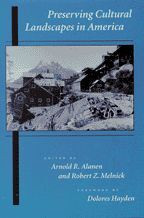
Reviews
Rehder obviously loves Appalachia and seeks to present it honestly, completely and positively.
Rehder's book is one of the best about Appalachia... A very good and accurate reference for persons interested in the region and in cultural geography in general.
An important work that must be read by anyone interested in developing a comprehensive knowledge of southern Appalachia.
An enjoyable and enlightening excursion through the cultural geography of Southern Appalachia.
An informative and entertaining look into the 'culture hearth' of the southern Appalachian Mountains... a distinctive cultural center in America.
An engaging book to read... I plan to use this book the next time I teach my course on the Sociology of Appalachian Culture.
In this comprehensive, in-depth look at the distinct cultural region of Southern Appalachia, Rehder emphasizes that the mosaic of identities present in Southern Appalachia cannot be generalized.
Rehder's book is one of the best about Appalachia... A very good and accurate reference for persons interested in the region and in cultural geography.
Rehder obviously loves Appalachia and seeks to present it honestly, completely and positively.
Rehder demonstrates an honest curiosity and a heart-felt appreciation of rural lifeways, which enrich his study and add to its popular appeal.
An intriguing regional geography.
Readers looking for an encyclopedic, detailed and well-researched account of cultural traits... sprinkled with Rehder's anecdotes and colorful language, will benefit greatly.
A valuable contribution to Appalachian literature.
I assign the book for my 'Geography of Appalachia' course because of its many strengths.
Packed with information about the people, culture, and environment of this mountainous region of America... lovingly written and one that was long thought out and researched.
Appalachian Folkways is very comprehensive and abundantly reveals John Rehder's profound depth of expertise on this region. No such comprehensive study of Appalachian folklife presently exists, nor do any older works achieve this breadth of coverage. Expertise leaps from every page.
Book Details
Preface
Chapter 1. The Real Appalachia
Chapter 2. The Shape of Appalachia
Chapter 3. Ethnicity and Settlement
Chapter 4. Folk Architecture and the Cultural Landscape
Chapter 5. Ways of Making a Living
Chapt
Preface
Chapter 1. The Real Appalachia
Chapter 2. The Shape of Appalachia
Chapter 3. Ethnicity and Settlement
Chapter 4. Folk Architecture and the Cultural Landscape
Chapter 5. Ways of Making a Living
Chapter 6. Foodways
Chapter 7. Folk Remedies and Belief Systems
Chapter 8. Folk Music, Folk Art, and Folk Festivals
Chapter 9. Folk Speech: Terms and Sayins
Epilogue
Notes
Glossary
References
Index





